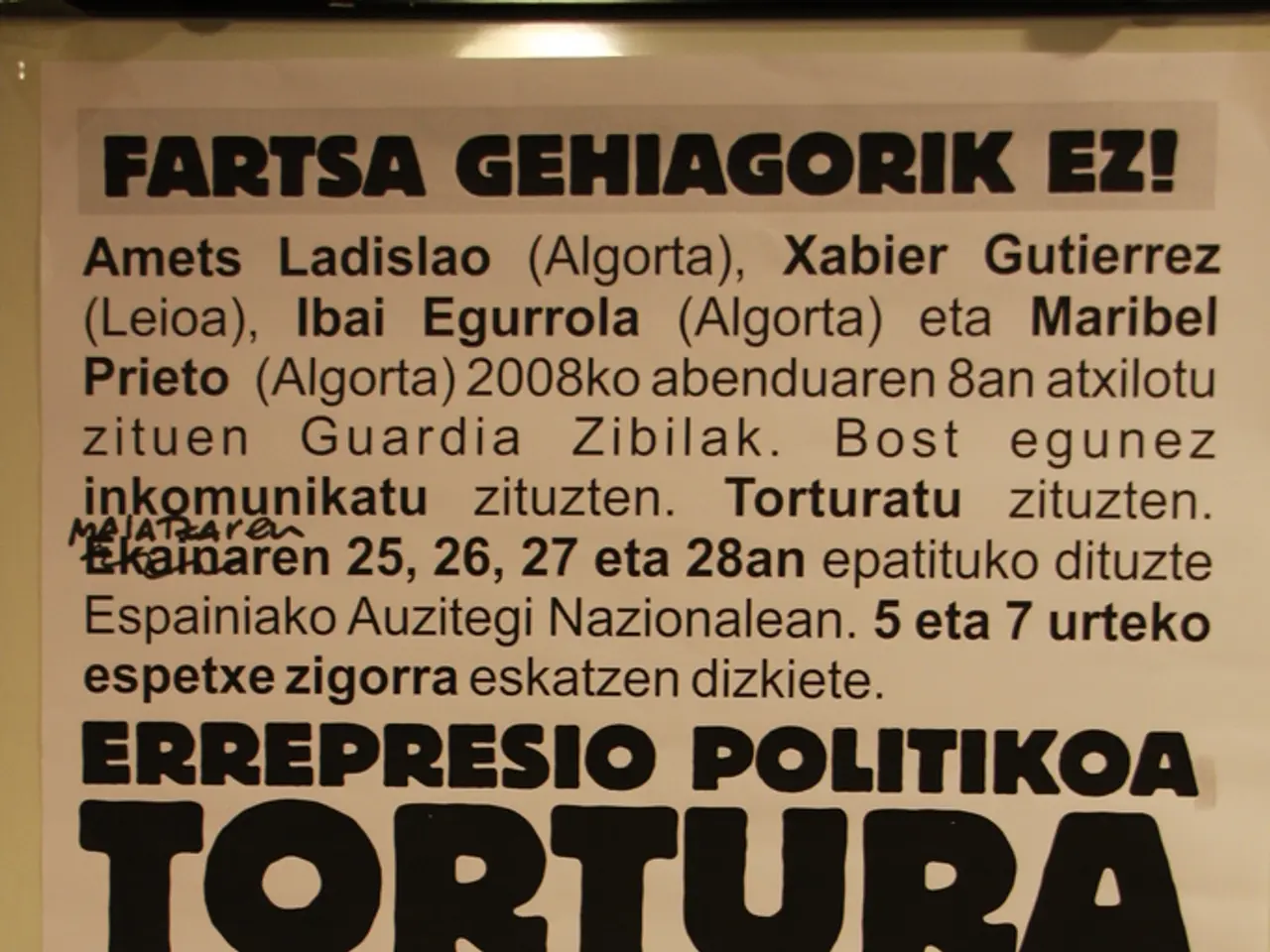Investigation Initiated by Spain's Ombudsman Over Prohibition of Muslim Holiday Observances in a Local Town
In the small town of Jumilla, located in the Murcia region of Spain, a contentious decision has been made that has sparked outrage and raised concerns about religious freedom and discrimination. The local authority has decided to ban cultural, social, or religious activities unrelated to the City Council from public buildings such as pavilions and sports facilities. This decision effectively restricts religious communities, including the local Muslim community, from using these public spaces based on their unique needs.
The decision was made following a proposal from the far-right Vox party, although they abstained, allowing Mayor Seve Gonzalez to approve the revised version. The Vox party's leader, Santiago Abascal, has defended the ban, stating that Spain must protect public spaces from practices foreign to its culture and way of life. He also referenced historical Spain, stating that "Spain is not Al Andalus."
This move has not been without criticism. Spain's Catholic bishops have warned that the ban violates fundamental rights and discriminates against all faiths. Mounir Benjelloun Andaloussi Azhari, president of the Spanish Federation of Islamic Organizations, has described the restrictions as "Islamophobic and discriminatory." The Union of Islamic Communities of Spain, represented by Mohamed El Ghaidouni, has called the ban "institutionalized Islamophobia."
The ban affects about 1,500 Muslims living in Jumilla, which has a population of just over 27,000. The ban has been particularly focused on Muslim celebrations like Eid al-Fitr and Eid al-Adha. The incident has been described as "anti-migrant unrest" by some residents, causing unrest in the community.
Spain's Migration Minister, Elma Saiz, has called the ban "shameful" and urged local leaders to apologize to local residents. The Spanish ombudsman, Angel Gabilondo, is investigating the Jumilla authorities' decision to ban Muslims from using public facilities for religious celebrations. He has requested details from the Jumilla authorities on how they plan to accommodate religious groups to exercise their right to worship in public spaces.
The ombudsman wants to know the measures planned to facilitate the exercise of acts of worship by religious denominations in public places like pavilions or sports centers. As of now, the Jumilla authorities have not yet provided details on how they plan to accommodate religious groups. The situation remains a topic of ongoing debate and concern in Spain.








